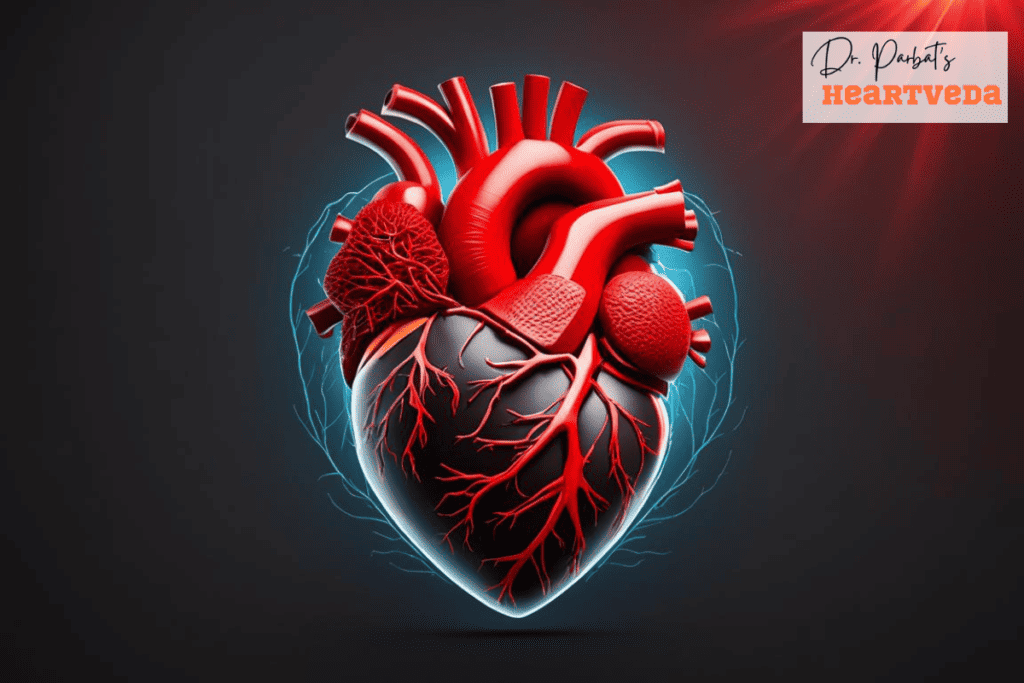
The silent buildup of cholesterol plaque within the tapestry of your arteries is a silent threat to your cardiovascular health. You might have heard the alarming statistics: in the United States, heart disease rises to the forefront, claiming around 650,000 lives yearly. The question you may ask is – can the stealthy advancement of this plaque be halted or even reversed? While reversing cholesterol plaque is a formidable challenge once it takes hold, the combined power of lifestyle alterations and medical intervention offers a beacon of hope. Your dedication to adopting healthier habits and possibly aggressive treatments can stall the plaque’s progression and, in some instances, minimally reduce its insidious spread.
Embarking on a journey to battle against cholesterol plaque starts with an understanding and a change in the day-to-day choices that pave the way for a stronger heart. Welcome to your tailored health guide, a blueprint to potentially tame the risks and reclaim control over your cardiovascular destiny.
Understanding Cholesterol Plaque and Atherosclerosis
When considering atherosclerosis, it’s vital to recognize that this condition is a primary contributor to cholesterol plaque formation and a well-known precursor to serious cardiac events. It all begins with endothelium damage, a direct consequence of risk factors such as high LDL cholesterol levels, active smoking habits, or the presence of diabetes. Understanding how these elements influence heart health is crucial in mounting an effective defense against heart disease.
In the intricate journey leading to atherosclerosis and eventual plaque buildup, LDL cholesterol infiltrates and settles within the compromised sections of arterial walls. In this sequestered environment, it collaborates with white blood cells, prompting the development of the plaques that constitute both a hallmark and hazard of atherosclerosis.
The silent threat these plaques pose can manifest in one of two ways: either remaining dormant within the arterial lining, contributing to a gradual narrowing of the vessel, or erupting unexpectedly. The latter, a plaque rupture, is a precarious event ushering in the acute onset of cardiovascular diseases such as heart attacks, strokes, and peripheral arterial disease (PAD).
Here’s a comprehensive look at the common risk factors for heart disease, which, combined, account for a staggering majority of cardiac incidents:
| Risk Factor | Description | Preventative Measures |
|---|---|---|
| High Cholesterol | Excess of bad LDL cholesterol in your bloodstream | Diet low in saturated fats and rich in omega-3 |
| High Blood Pressure | Force of your blood against artery walls is too high | Limiting salt intake, regular exercise, and stress management |
| Diabetes | High blood sugar levels damage the arteries | Maintaining a balanced diet and monitoring glucose levels |
| Obesity | Excessive body weight strains the heart | Nutrition counseling and active lifestyle |
| Smoking | Nicotine constricts blood vessels and accelerates plaque buildup | Smoking cessation programs and nicotine replacement therapy |
| Sedentary Lifestyle | Lack of physical activity affects heart muscle | Incorporating regular cardiovascular exercises |
| Stress | Chronic stress can lead to heart damage | Practicing relaxation techniques and seeking psychological support |
By decoding the mechanisms of atherosclerosis and the formation of cholesterol plaques, you can take informed and meaningful steps towards safeguarding the health of your arteries and your heart.
Will Cholesterol Plaque Go Away
If you’re looking to improve your cardiovascular health, understanding whether reducing cholesterol plaque naturally is possible could be critical. The question many ask is: Does cholesterol plaque dissolve naturally? While completely reversing cholesterol plaque buildup can be a challenge, certain lifestyle modifications have shown promise in not only preventing further accumulation but also in reducing existing plaques.
Scientific studies indicate that taking proactive measures can lead to a reduction in the size of cholesterol plaques. Below, we delve into strategies that may help you in this journey toward better heart health.
- Dietary Changes: A diet low in saturated fats and high in fiber is beneficial. Foods rich in omega-3 fatty acids, like salmon and flaxseeds, can have a positive effect on your cholesterol levels.
- Exercise: Regular physical activity is essential in managing cholesterol. Activities like brisk walking or cycling can enhance heart health and assist in plaque reduction.
- Smoking Cessation: Quitting smoking has immediate as well as long-term benefits for your arteries and overall health.
Implementing these methods may help you succeed in reducing cholesterol plaque naturally and maintaining a healthier heart. However, consistency in these habits is key for potential reversal of plaque buildup. Let’s take a closer look at some practical steps you can take:
| Lifestyle Modification | Benefits | Recommended Activities |
|---|---|---|
| Healthy Eating | Reduces LDL levels and potential plaque buildup | Consume more fruits, vegetables, and whole grains |
| Regular Exercise | Strengthens the heart and improves blood flow | At least 30 minutes of moderate exercise most days of the week |
| Smoking Cessation | Improves blood vessel function and lowers heart disease risk | Seek support through cessation programs and products |
By committing to these healthful practices, you may positively impact your cholesterol levels and contribute to the long-term vitality of your heart. Remember, you’re taking these steps not only to possibly reduce cholesterol plaque but also to bolster your overall well-being.
Reversing Cholesterol Plaque Buildup Naturally
Discovering natural remedies for cholesterol plaque is key to maintaining cardiovascular health without relying solely on medications. You may wonder, can exercise remove cholesterol plaque? Indeed, combining physical activity with a diet to eliminate cholesterol plaque can lead to a powerful synergy for improving your heart’s wellbeing. Let’s explore some strategies that could be included in your routine to naturally combat cholesterol plaque buildup.

The cornerstones of a heart-healthy lifestyle involve a balanced diet and regular exercise. Incorporating these habits not only helps manage your cholesterol levels but also reduces your risk factors for developing heart disease. Here’s a guide:
- Unsaturated Fats: Choose foods high in unsaturated fats, such as avocados, olive oil, and nuts, which can help raise “good” HDL cholesterol levels.
- Avoid Saturated Fats: Limit intake of saturated fats found in red meat and full-fat dairy products to keep “bad” LDL cholesterol levels in check.
- Fiber Intake: Higher fiber foods like beans, legumes, whole grains, and fruits aid in cholesterol management.
- Omega-3 Fatty Acids: Incorporate sources of omega-3s, like salmon and flaxseeds, which have been found to reduce the risk of plaque build-up in arteries.
When it comes to exercise, consistent cardiovascular activities such as walking, running, or swimming can significantly bolster your heart health. Engage in at least 30 minutes of moderate to intense exercise most days of the week for optimal benefits.
| Activity | Benefits for Cholesterol Plaque |
|---|---|
| Brisk Walking | Improves blood circulation and raises HDL cholesterol levels. |
| Cycling | Boosts cardiorespiratory fitness and aids in weight management. |
| Swimming | Provides a low-impact full-body workout which can reduce coronary artery calcification. |
Remember, your journey to a healthier heart does not have to be restrictive or monotonous. Find activities you enjoy and foods that not only satiate but also contribute to your overall health. Additionally, implementing stress reduction techniques and quitting smoking are pivotal in preventing further cholesterol plaque accumulation. By making these manageable yet impactful changes, you’re on the right path to naturally reversing cholesterol plaque buildup.
How to Remove Cholesterol Plaque Through Diet and Exercise
If you’re looking to begin a diet to eliminate cholesterol plaque and reduce your risk of cardiovascular diseases, starting with your diet is a critical step. Foods high in unsaturated fats, like nuts and fatty fish, can significantly impact your health by lowering LDL cholesterol and raising HDL cholesterol. Think of your meals as opportunities to not only enjoy delicious food but also to empower your body to naturally fight off heart disease.
Regular cardiovascular exercise is equally important. Not only does it help in reducing cholesterol plaque naturally, but it also strengthens your heart and improves your overall well-being. Committing to consistent physical activity such as jogging, swimming, or cycling can make all the difference in improving your cardiovascular health.
| Food Group | Foods to Include | Foods to Avoid |
|---|---|---|
| Proteins | Lean meats, lentils, legumes | Red meat, processed meats |
| Fats | Nuts, avocados, olive oil | Butter, cheese, palm oil |
| Carbohydrates | Whole grains, sweet potatoes | White bread, sugary cereals |
| Fruits and Vegetables | Berries, leafy greens, carrots | Coconut, canned fruits with syrup |
| Dairy | Low-fat or fat-free options | Full-fat milk, cream, ice cream |
Creating a balanced approach between your dietary habits and physical activities is the cornerstone to not only combating existing cholesterol plaque but also preventing it. Here’s a straightforward way to remember it:
- Swap out saturated fats for heart-healthy unsaturated fats.
- Introduce more fiber-rich foods such as fruits and vegetables into your diet.
- Lean on lean proteins to keep your body energized and your cholesterol in check.
- Get your heart pumping with at least 30 minutes of cardiovascular exercise daily.
Remember, tackling cholesterol plaque is a lifestyle commitment—your heart will thank you for every positive step you take. Start with these guidelines, and you’re already on the path to a stronger, healthier heart.
Medication for Cholesterol Plaque Reduction
If you’ve already made positive lifestyle changes but find they’re not entirely effective in managing cholesterol plaque, don’t lose heart. The power of modern medicine brings several effective medication for cholesterol plaque reduction to your aid. Statins, the most commonly prescribed drugs, not only lower LDL cholesterol but also carry the potential to slightly diminish existing plaque. They work by blocking a substance your body requires to manufacture cholesterol, thereby forcing your liver to extract cholesterol from your blood.
Besides statins, your physician may consider other medications such as fibrates, niacin, and bile acid sequestrants depending on your specific situation. Fibrates are particularly good at cutting down triglycerides and are sometimes used in conjunction with statins for a more comprehensive cholesterol management strategy. On the other hand, bile acid sequestrants are another class of drugs which bind to bile acids—forcing your liver to use excess cholesterol to make more bile acids, thus lowering the cholesterol level in your blood.
In scenarios where aggressive treatment is called for, new classes of drugs, such as PCSK9 inhibitors, may also be introduced. These are known to significantly reduce LDL cholesterol levels and are often recommended for patients at high risk of cardiovascular events. Along with medications aimed directly at cholesterol management, ensuring your blood pressure is within a healthy range is crucial for cardiovascular health. Hence, in tandem with cholesterol-focused drugs, blood pressure medications might also be part of your regimen. Always remember, your journey towards a healthier heart can greatly benefit from a combination of lifestyle alterations and targeted medications. Consult with your healthcare provider to establish a regimen that’s tailored to your health needs.
Key Takeaways
- Understanding the impact of cholesterol plaque is vital for cardiovascular health.
- Lifestyle changes play a crucial role in managing and potentially reversing plaque buildup.
- Aggressive medical treatments can offer hope in reducing the size of existing plaques.
- A tailored health guide is your ally in navigating the complex journey of cardiovascular wellness.
- Preventive measures are key to stopping further progression of cholesterol plaque.
- Diet and exercise have substantial roles in the fight against heart disease.
